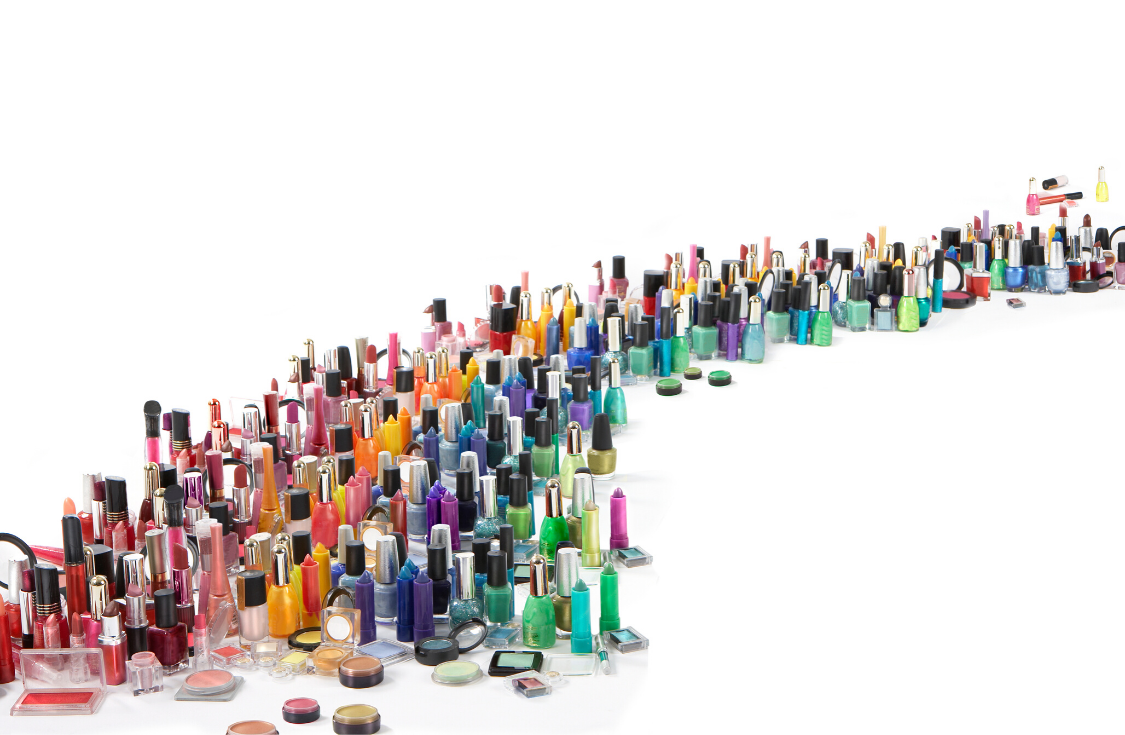
President Franklin Delano Roosevelt signed the Federal Food, Drug and Cosmetics Act (FDCA) into law in 1938. Back then, you could rent a house for $27/month, a loaf of bread cost 9 cents, a gallon of gas cost 10 cents, and you could buy a new car for $763. A lot has changed since the FDCA was enacted, but unfortunately for consumers a lot has stayed the same when it comes to cosmetic safety.
U.S. Cosmetics Regulations Way Outdated
Most people assume the Federal Food and Drug Administration (FDA) regulates beauty and personal care products in the same way it does food and drugs to protect consumer health and safety. You might be surprised to hear that this could not be farther from the truth. In fact, cosmetics are one of the least regulated consumer products on the market today.
Federal cosmetic safety protections have simply not kept pace with the rapid growth of the cosmetics industry from a $1B industry in 1938 to a $100B domestic industry today. The FDCA has only been amended twice, since 1938, and there are still only 2 pages of federal law devoted to cosmetic safety.
The cosmetics title of the FDCA provides the FDA with virtually no statutory power to perform even the most rudimentary functions to ensure the safety of an estimated $100 billion cosmetic industry.
Under existing law:
- Companies can use virtually any raw material in a finished cosmetic product – including chemicals linked to long term adverse health effects like cancer, birth defects, hormone disruption, learning disabilities, and more – without pre-market FDA safety testing or review.
- The ingredients in professional hair and nail salon products and internet sales of cosmetics do not have to be labeled.
- The secret, often toxic ingredients in fragrance do not have to be disclosed to consumers, manufacturers or even to the FDA.
- Unlike food and drugs, the FDA cannot require recalls of cosmetic products that are harming consumers or salon workers without going to court to argue the need to remove those products from the market, which seldom if ever happens.
- And, the FDA cannot require manufacturers to register their cosmetic establishments, their products, or their product ingredients, or report cosmetic-related injuries. Instead, the FDA relies on voluntary reporting of ingredients, injuries and establishments.
As a result, the FDA does not know:
- The overall number of ingredients in personal care products.
- The ingredients in a particular cosmetic product that lists “fragrance” as a mask for dozens – sometimes hundreds – of individual chemicals.
- The number and location of companies that manufacture and distribute personal care products.
- The FDA doesn’t even know the extent to which adverse health impacts are occurring from harmful ingredients in cosmetic products because companies are not required by law to tell them (unlike food, toys, drugs and medical devices).
Back then, companies were using toxic chemicals like mercury, arsenic, lead and coal tar to formulate cosmetics – uses that led to the enactment of the Food, Drug and Cosmetic Act. Today companies are still using these same deadly chemicals to make and sell cosmetics because, quite simply, they can.
Newspaper headlines are rife with shocking stories of mercury in skin lightening creams, formaldehyde in hair straightening products, lead and other heavy metals in kids face paint and asbestos-contaminated baby powder. Adding insult to injury, women of color, and black women in particular, are faring the worst when it comes to cosmetic safety because of the toxic chemicals in the toxic products marketed to them. A recent NIEHS study showed that black women who regularly dye their hair have a 60% increased risk of breast cancer. Shopping in the beauty aisle shouldn’t put black women’s health at risk. Especially given black women already face a 31% breast cancer mortality rate – the highest of any U.S. racial or ethnic group.
But the sad truth is that the FDA will not, and cannot, do anything to change what has become a buyer beware, Wild West of cosmetic safety until congress gives them the power to do so.
Proposed Cosmetics Policy Reform Bills
The good news is 3 bills being considered by lawmakers in congress and in California are poised to change the ‘safe cosmetics’ conversation, finally, for the better.
The Safe Cosmetics and Personal Care Products Act of 2019 (H.R.4296) introduced by Rep. Jan Schakowsky (D-CA) is the most consumer-facing and considered the gold standard of bills introduced in congress to modernize federal cosmetic safety regulation by women’s health, environmental health, and environmental justice organizations. It is the only federal bill that holds cosmetic companies accountable for the safety of the ingredients in their products; requires supply chain transparency and industry sharing of safety data to help level the playing field for small, clean cosmetic companies; closes the federal labeling loophole that allows secret—often toxic fragrance chemicals—to hide in cosmetic products; bans most animal testing; and tackles the over-exposure to toxic chemicals experienced by communities of color and professional salon workers.
The California Toxic Free Cosmetic Act (AB2762-Muratsuchi), would ban 12 of the most toxic chemicals on the planet from cosmetics sold in California, including mercury, 4 types of formaldehyde, 2 long chain parabens, 2 of the worst of the worst phthalates, 2 common phenylenediamines found in hair dye and the PFAS ‘forever’ chemicals used to line non-stick cookware. Ten of these chemicals are linked to breast cancer, 9 are liked to increased risk of susceptibility to COVID-19, and all of these chemicals are already banned from cosmetics by the European Union.
The California Cosmetic Fragrance and Flavor Ingredient Right to Know Act of 2019 (SB 312-Leyva), would force the disclosure of fragrance or flavor ingredients linked to harm to human health or the environment in beauty or personal care products sold in California. This bill is the first of its kind in the nation to give consumers and professional salon workers access to information previously hidden from the public because of a federal labeling loophole which requires all of the ingredients in a cosmetic product to appear on a product label with the exception of fragrance and flavor ingredients. This bill is important because it takes a whack at antiquated trade secret protections that allow harmful ingredients to hide under that one word ‘fragrance’ or ‘flavor’ without a consumer or salon workers’ knowledge or consent.
Learn about latest our work to secure updated, health-protective federal cosmetics safety laws
Demand toxic-free beauty now! Tell your elected officials that we can’t wait for common-sense, much-needed cosmetic safety public health protections: Take Action

